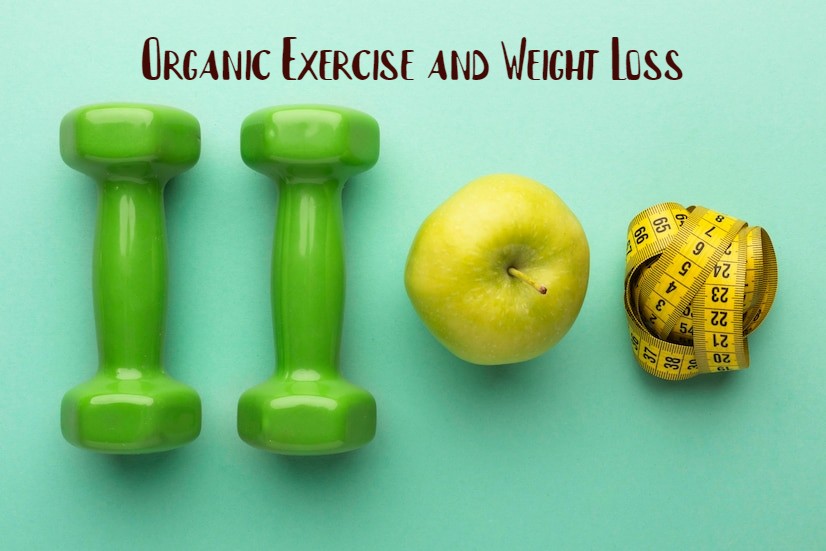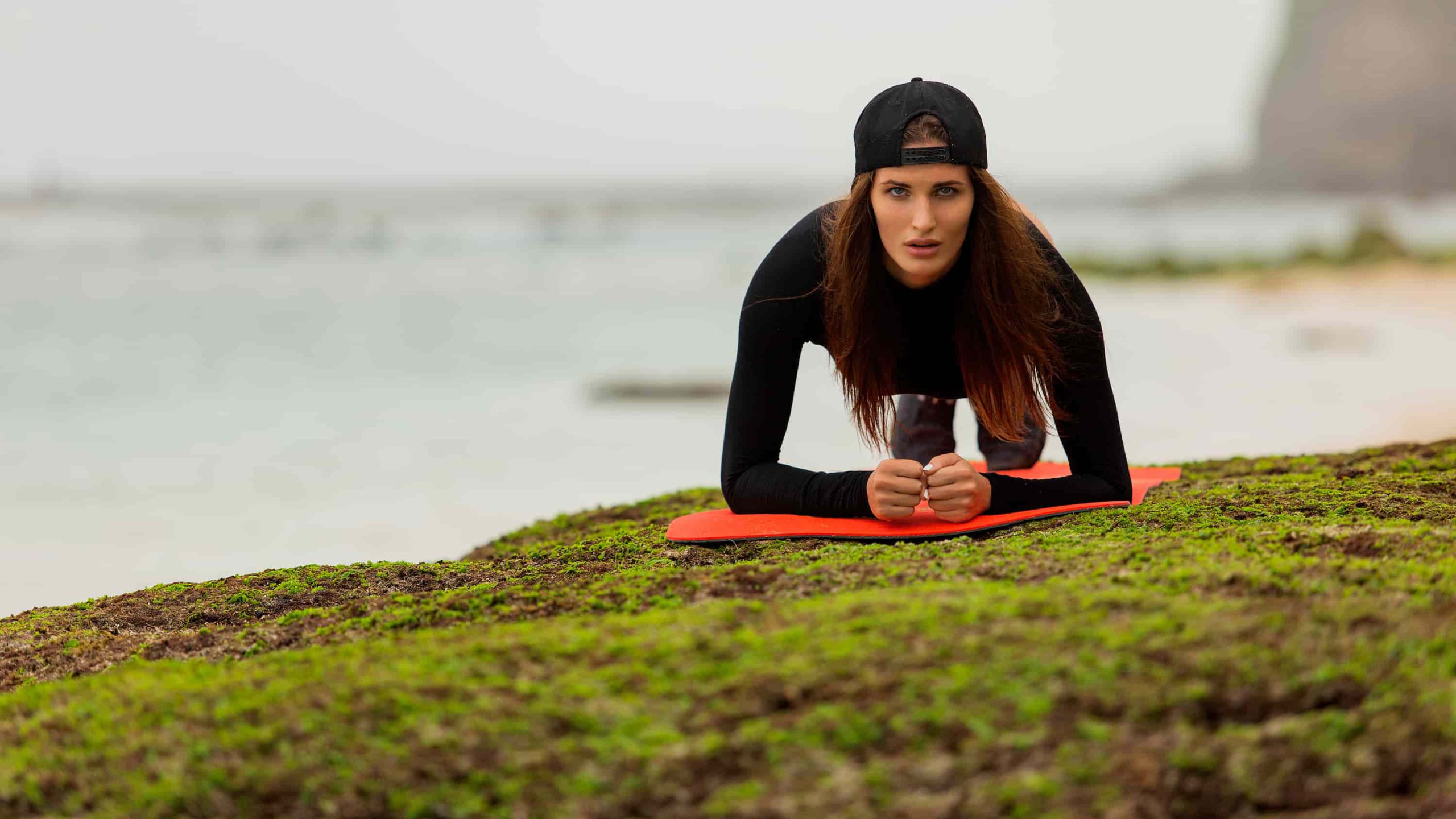Organic Exercise and Mental Health
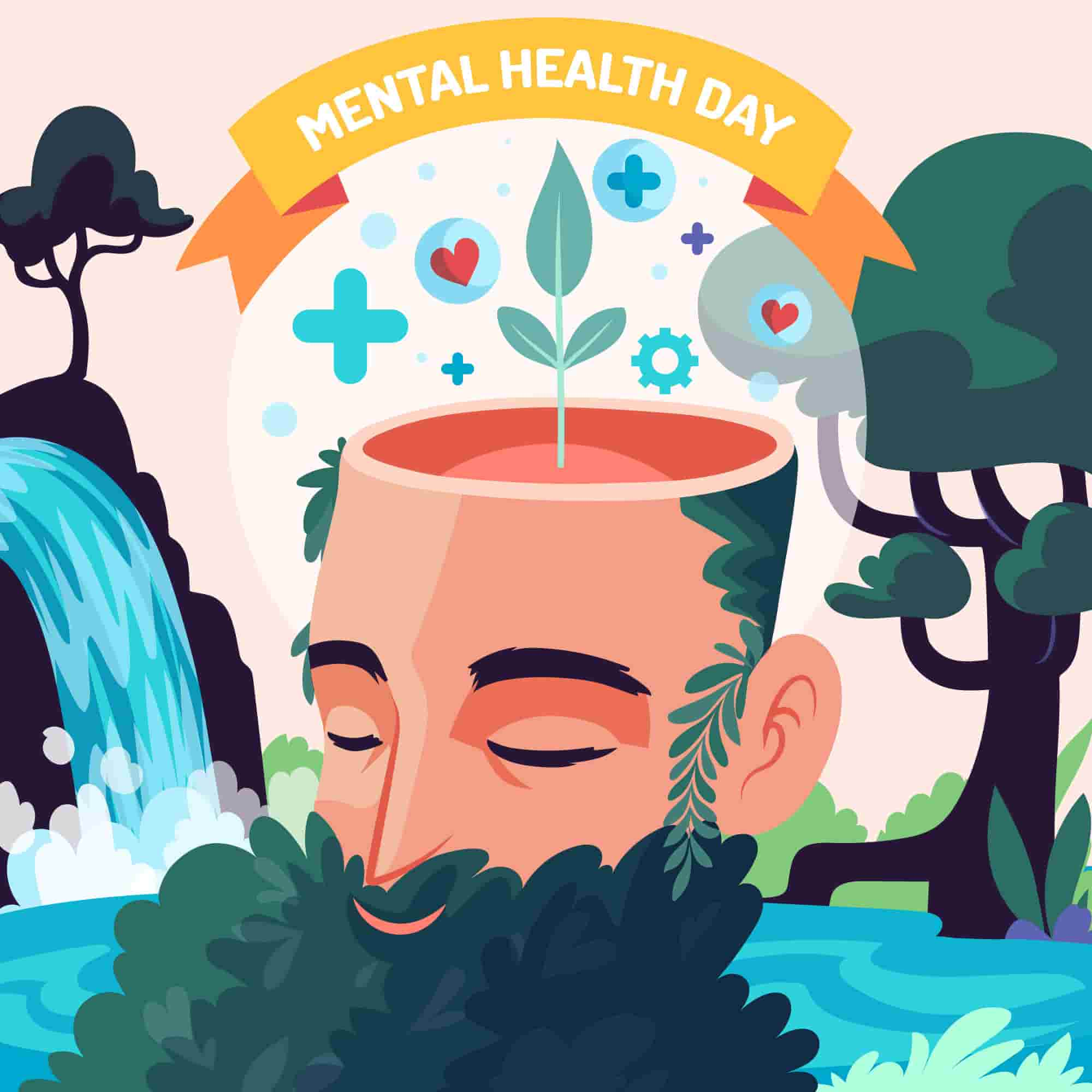
Hey there, friend! Are you feeling a bit down lately? Are you looking for a way to boost your mood and feel more positive? Well, I’ve got great news for you – exercise is one of the best things you can do for your mental health! And even better yet, organic exercise, which means getting your body moving in a natural and enjoyable way, can be even more beneficial for your mood and overall well-being.
So, what exactly is organic exercise? It’s any type of physical activity that you find enjoyable and can do in a natural, unstructured way. This could be anything from taking a walk in nature, to dancing to your favorite music, to playing a game of pickup basketball with friends. The key is to find an activity that feels good to you and doesn’t feel like a chore or a workout.
Studies have shown that organic exercise can be incredibly effective in reducing symptoms of depression and anxiety, as well as boosting overall mood and self-esteem. So, if you’re looking for a way to improve your mental health and feel better overall, I highly recommend giving organic exercise a try. Read to the end of my blog “Organic Exercise and Mental Health” to learn more about the benefits of organic exercise and how to get started on your own organic exercise journey.
| Fact | Explanation |
|---|---|
| Organic exercise | Physical activity that is done outdoors in natural environments |
| Mental health | A person’s overall psychological well-being |
| Benefits of organic exercise | 1. Improved mood and reduced symptoms of depression<br>2. Lower stress levels<br>3. Increased self-esteem and confidence<br>4. Improved cognitive function and memory<br>5. Better sleep quality |
| How organic exercise affects mental health | Organic exercise stimulates the production of endorphins and other feel-good neurotransmitters in the brain, which can lead to improved mood and reduced stress. Being in natural environments can also help promote relaxation and reduce feelings of anxiety. Additionally, organic exercise can provide a sense of accomplishment and mastery, leading to increased self-esteem and confidence. |
| Examples of organic exercise | Hiking, trail running, rock climbing, kayaking, surfing, gardening, farming, etc. |
What is “Nature’s Therapy”?
“Nature’s Therapy” is a term used to describe the therapeutic benefits of spending time in natural environments. Organic exercise involves physical activity in natural surroundings, such as hiking, biking, running, swimming, or even just walking in the park. The term “organic” refers to the natural environment, as opposed to an artificial or indoor setting.

The Science Behind Nature’s Therapy
There is a growing body of research that suggests that nature can have a profound impact on our mental health. For example, a study conducted by the University of Michigan found that spending time in nature can significantly improve mood and reduce symptoms of anxiety and depression. Similarly, a study published in the journal Environmental Science & Technology found that just 20-30 minutes of nature exposure per week can have a positive effect on mental health. Other studies have found that exposure to nature can reduce stress levels, improve cognitive function, and even boost immune function. Taken together, these findings suggest that nature may be a powerful tool for promoting mental health and well-being.
Research has shown that organic exercise can have a number of positive effects on mental health, including reducing stress and anxiety, improving cognitive function, and boosting self-esteem and confidence. One possible explanation for these effects is that exposure to nature triggers the release of feel-good chemicals like dopamine and serotonin in the brain. Additionally, organic exercise allows us to disconnect from technology and the stresses of modern life, providing a much-needed break for our overworked brains. Finally, spending time in nature can also help us cultivate a sense of awe and wonder, which can help us put our problems into perspective and feel more connected to the world around us. All of these factors work together to make organic exercise a powerful tool for promoting mental health and well-being.
- Evolutionary Psychology: Humans have spent the vast majority of their existence living in natural environments. As a result, we have evolved to have an innate connection with nature. When we spend time in nature, it can trigger feelings of safety and security, which can help to reduce stress and anxiety.
- Attention Restoration Theory: In our modern world, we are constantly bombarded with stimuli, which can be overwhelming for our brains. Spending time in nature can provide a break from this constant stimulation and allow our brains to rest and recover. This is known as attention restoration theory.
- Biophilia Hypothesis: The biophilia hypothesis suggests that humans have an innate connection with other living things. When we spend time in nature, we are surrounded by other living things, which can help to fulfill this innate need and provide a sense of well-being.
- Shinrin-yoku: Shinrin-yoku, also known as forest bathing, is a Japanese practice that involves spending time in nature for the purpose of improving mental and physical health. Studies have shown that forest bathing can help to lower cortisol levels, improve mood, and boost the immune system.
The Benefits of Organic Exercise for Mental Health
Reducing stress and anxiety
Reducing stress and anxiety Stress is a normal part of life, but when it becomes chronic, it can have serious negative effects on our mental and physical health. One key player in the stress response is cortisol, a hormone that is released by the body in response to stress. Chronically elevated cortisol levels have been linked to a range of health problems, including anxiety, depression, and heart disease. However, research has shown that exposure to nature can help reduce cortisol levels and mitigate the negative effects of stress. For example, a study published in the International Journal of Environmental Health Research found that spending time in a forest environment can lead to a significant reduction in cortisol levels. Other studies have found that activities like gardening, hiking, and camping can also have a stress-reducing effect. Overall, it seems that organic exercise in a natural setting can be a powerful tool for reducing stress and anxiety.
Improving cognitive function
Improving cognitive function Cognitive function refers to our ability to process information, learn, and remember. It’s an important part of our overall mental health and well-being. Fortunately, research has shown that nature can have a positive effect on cognitive function. For example, a study conducted at the University of Michigan found that taking a nature walk can improve cognitive performance by as much as 20 percent. Other studies have found that nature exposure can help improve attention, memory, and creativity. These benefits may be due in part to the fact that nature provides a restorative environment that allows our brains to relax and recharge. Additionally, exposure to natural light and fresh air can help improve blood flow to the brain, which may also play a role in the cognitive benefits of organic exercise.
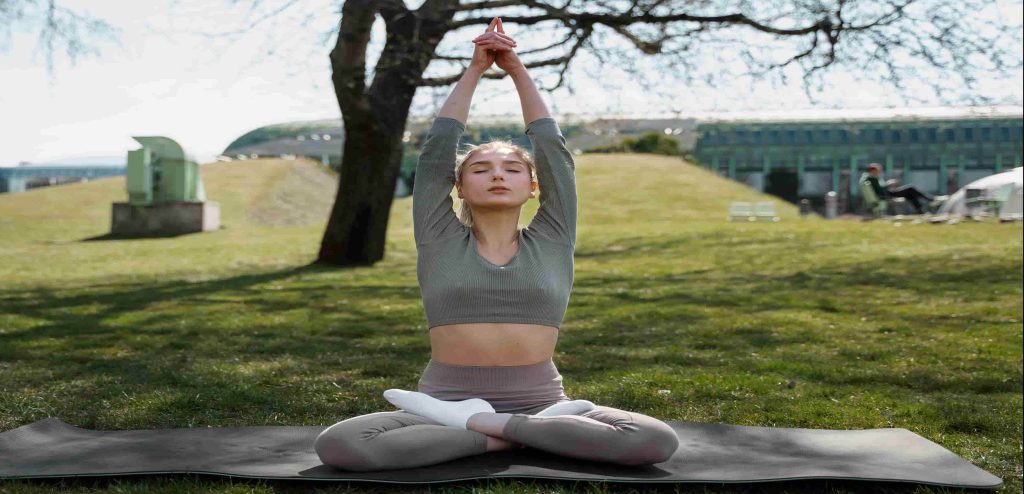
Boosting self-esteem and confidence
Boosting self-esteem and confidence Self-esteem and confidence are important components of our mental health and well-being. When we feel good about ourselves, we’re more likely to be resilient in the face of adversity and to take care of ourselves. Fortunately, research has shown that exposure to nature can have a positive effect on self-esteem and confidence. For example, a study published in the journal Health & Place found that people who spent time in nature had higher self-esteem and were more likely to feel confident in their ability to handle life’s challenges. Other studies have found that activities like hiking and rock climbing can help boost self-esteem and confidence. These benefits may be due in part to the fact that organic exercise in a natural setting provides a sense of accomplishment and a connection to something greater than ourselves.
Enhancing sleep quality
Enhancing sleep quality Sleep is essential for our physical and mental health, but many of us struggle to get enough high-quality sleep. Fortunately, nature can help. Research has shown that exposure to nature can have a positive effect on sleep quality. For example, a study published in the journal Sleep Health found that people who spent time in nature had better sleep quality and were more likely to feel refreshed in the morning. Other studies have found that camping and other outdoor activities can help regulate our sleep-wake cycles and improve sleep quality. These benefits may be due in part to the fact that nature provides a calming and restorative environment that helps us relax and unwind.
Boosting immune function
Boosting immune function Our immune system plays a crucial role in keeping us healthy, both physically and mentally. Research has shown that exposure to nature can have a positive effect on immune function. For example, a study published in the International Journal of Immunopathology and Pharmacology found that spending time in nature can boost levels of natural killer cells, which are important for fighting off infections and cancer. Other studies have found that exposure to natural environments can help reduce inflammation and improve overall immune function. These benefits may be due in part to the fact that nature provides a rich and diverse environment that exposes us to a wide range of beneficial microbes and other substances.
Furthermore, a study conducted by researchers from the University of Essex showed that just five minutes of “green exercise,” or exercise in nature, can boost self-esteem and mood. Additionally, engaging in organic exercise can provide a sense of accomplishment and achievement, which can also contribute to an increase in self-esteem and confidence.
Organic exercise has also been found to enhance sleep quality, which is crucial for maintaining good mental health. A study published in the International Journal of Environmental Research and Public Health found that exposure to natural environments can improve sleep quality and duration. Furthermore, the study found that those who exercised in natural environments experienced greater improvements in sleep quality than those who exercised indoors.
Tips for Incorporating Organic Exercise into Your Routine
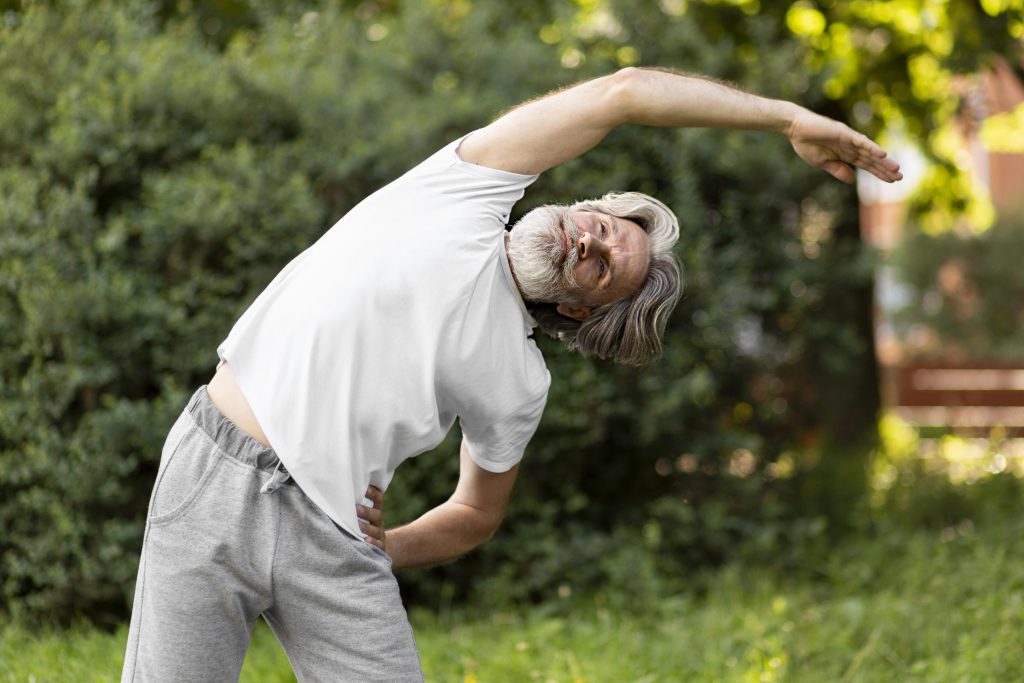
Now that we understand the benefits of organic exercise for mental health, let’s discuss some tips for incorporating it into your routine.
First and foremost, starting small is key. You don’t have to commit to a strenuous hike or a long run right off the bat. Start with a short walk in nature and gradually increase the length and intensity of your exercise as you feel more comfortable.
Finding a buddy can also be a great way to incorporate organic exercise into your routine. Having someone to exercise with can provide motivation and accountability, as well as make the experience more enjoyable.
Another tip for incorporating organic exercise into your routine is to embrace the seasons. While it may be easier to exercise outside in the warmer months, there are still ways to enjoy nature and exercise during the winter. Bundle up and take a walk in the snow, or try cross-country skiing or snowshoeing.
Staying safe is also important when engaging in organic exercise. Be sure to wear appropriate clothing and footwear, stay hydrated, and be aware of your surroundings. If you’re going for a hike, be sure to bring a map and familiarize yourself with the trail beforehand.
Finally, making organic exercise a habit is crucial for reaping the mental health benefits. Incorporate it into your daily routine, whether it’s taking a walk during your lunch break or going for a hike on the weekends. Set achievable goals and track your progress to stay motivated.
Incorporating organic exercise into your routine doesn’t have to be daunting. Start small, find a buddy, embrace the seasons, stay safe, and make it a habit. By doing so, you can experience the numerous benefits of organic exercise for your mental health.
How to Incorporate Organic Exercise into Daily Routine
Incorporating organic exercise into daily routines can be simple and enjoyable. Here are a few ideas for incorporating organic exercise into daily routines:
Hiking
Hiking is a great way to get outdoors and engage in organic exercise. It can be done alone or with friends, and there are hiking trails available for all skill levels. Hiking can be a great way to enjoy nature while also getting a good workout.
Biking
Biking is another great way to get outdoors and engage in organic exercise. It can be done alone or with friends, and there are biking trails available for all skill levels. Biking can be a fun and efficient way to explore natural environments.
Swimming
Swimming is a low-impact exercise that can be an excellent way to engage in organic exercise. Whether swimming in a natural body of water, such as a lake or ocean, or in a pool, swimming provides a full-body workout and can be a great way to cool off on a hot day.
Running
Running is a popular form of exercise that can also be done outdoors in a natural setting. Whether running on a trail or through a park, running can provide a great workout while also allowing individuals to enjoy nature and the outdoors.
Precautions to Take When Doing Organic Exercise
While organic exercise can be an excellent way to improve mental health, it’s important to take precautions to ensure safety. Some precautions to consider include:
- Wearing appropriate clothing and footwear
- Bringing enough water and snacks for the duration of the activity
- Letting someone know where you will be and when you expect to return
- Checking the weather forecast before heading out and adjusting plans accordingly
- Being aware of any potential hazards, such as wildlife or uneven terrain
Conclusion
Incorporating organic exercise into daily routines can be an excellent way to improve mental health. By engaging in physical activities in natural settings, individuals can reduce stress and anxiety, boost mood and happiness, enhance cognitive function, improve self-esteem and confidence, and promote better sleep. With a variety of activities to choose from and precautions to ensure safety, organic exercise can be an enjoyable and effective way to improve mental health.
FAQ
No, organic exercise involves physical activities that are performed outdoors in natural settings.
Yes, organic exercise can be adapted to suit all fitness levels. There are a variety of activities available, from hiking to swimming, that can be modified to meet individual needs and abilities.
Yes, organic exercise can be done alone or with others. Many activities, such as hiking and running, can be enjoyed alone, while others, such as biking and swimming, can be done with friends.
In addition to mental health benefits, organic exercise can also improve physical health by promoting cardiovascular health, improving muscle strength and endurance, and reducing the risk of chronic diseases such as diabetes and heart disease.
It is recommended to engage in physical activity for at least 30 minutes a day, five days a week. However, individuals can adjust this recommendation based on their personal goals and abilities.
